Laurie Halbrook, 44, is a registered nurse in New Orleans, La.
Nearly a month ago, I heard a seasoned nurse talk about the COVID threat, and I could hear the fear in her voice. That scared me.
I’ve got two small children, a 3-year-old and a 1-½ year old. For the first time I felt really weak and very vulnerable. I took an oath to take care of people. But my children and husband didn’t sign up to get sick.
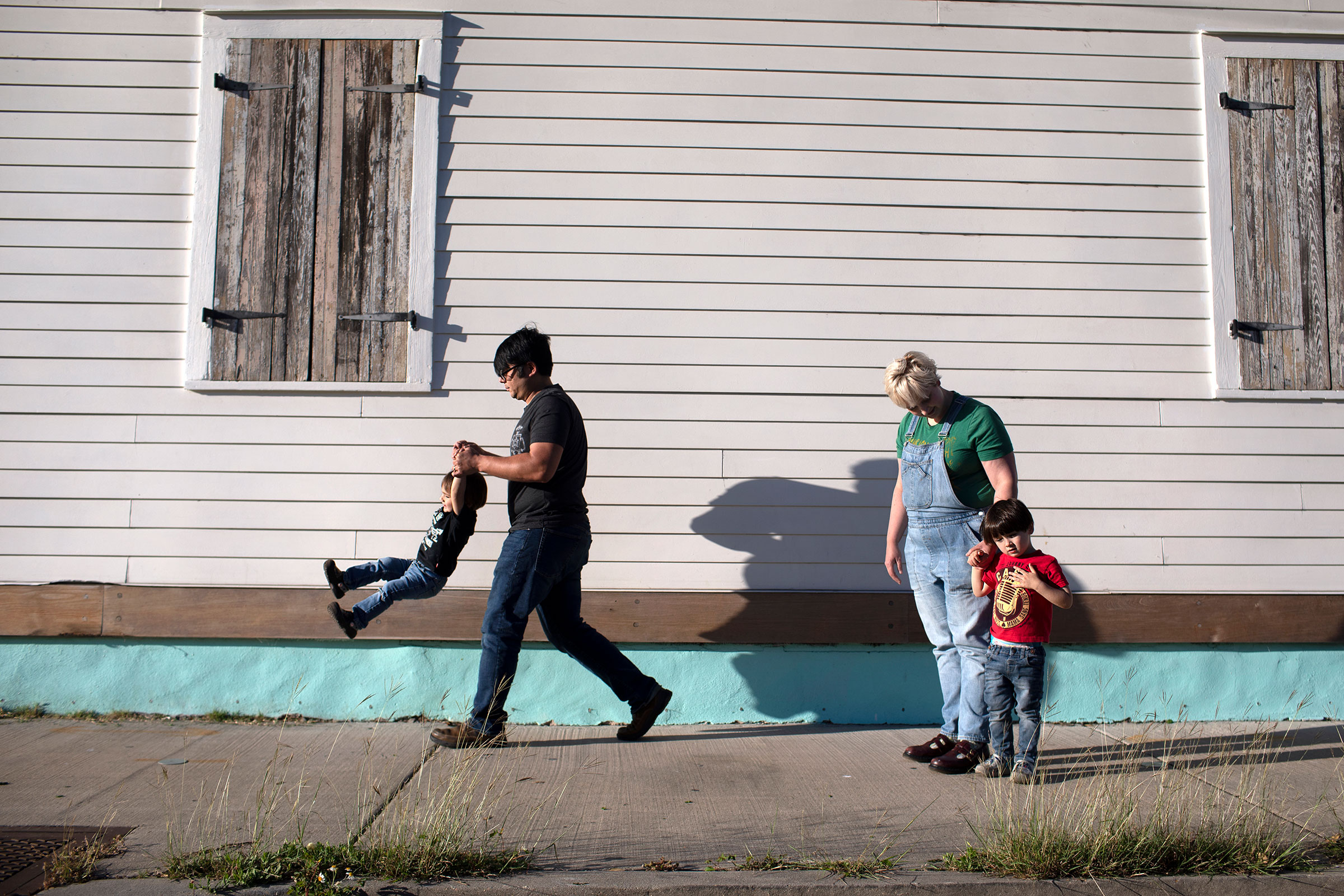
Not long after that, I found out someone who I work closely with tested positive for COVID-19. A little while later, I spiked a fever. I had bronchitis, which has similar symptoms to COVID-19. I took a test for healthcare workers, where you get results in 24 hours.
I spent the next few days away from my family, alone on one side of my house in New Orleans. I was really afraid that I had it. I let my mind go to dark places. I sat there and thought, maybe I need to work on my will. It was heartbreaking because you can hear your children cry. You can hear them [testing] the lock on the door. And you can hear little footsteps, and it just breaks your heart because you want to be with them. The little footsteps, I could recognize which child it was by the sound of their feet running.
I was trying to explain to a 3-year-old coronaviruses. And I was like, “You know there’s a big germ that’s out there that’s hurting a lot of people, and I want to snuggle with you more than anything in the world right now, but Mommy can’t sleep with you. I need to stay away to keep you safe.”
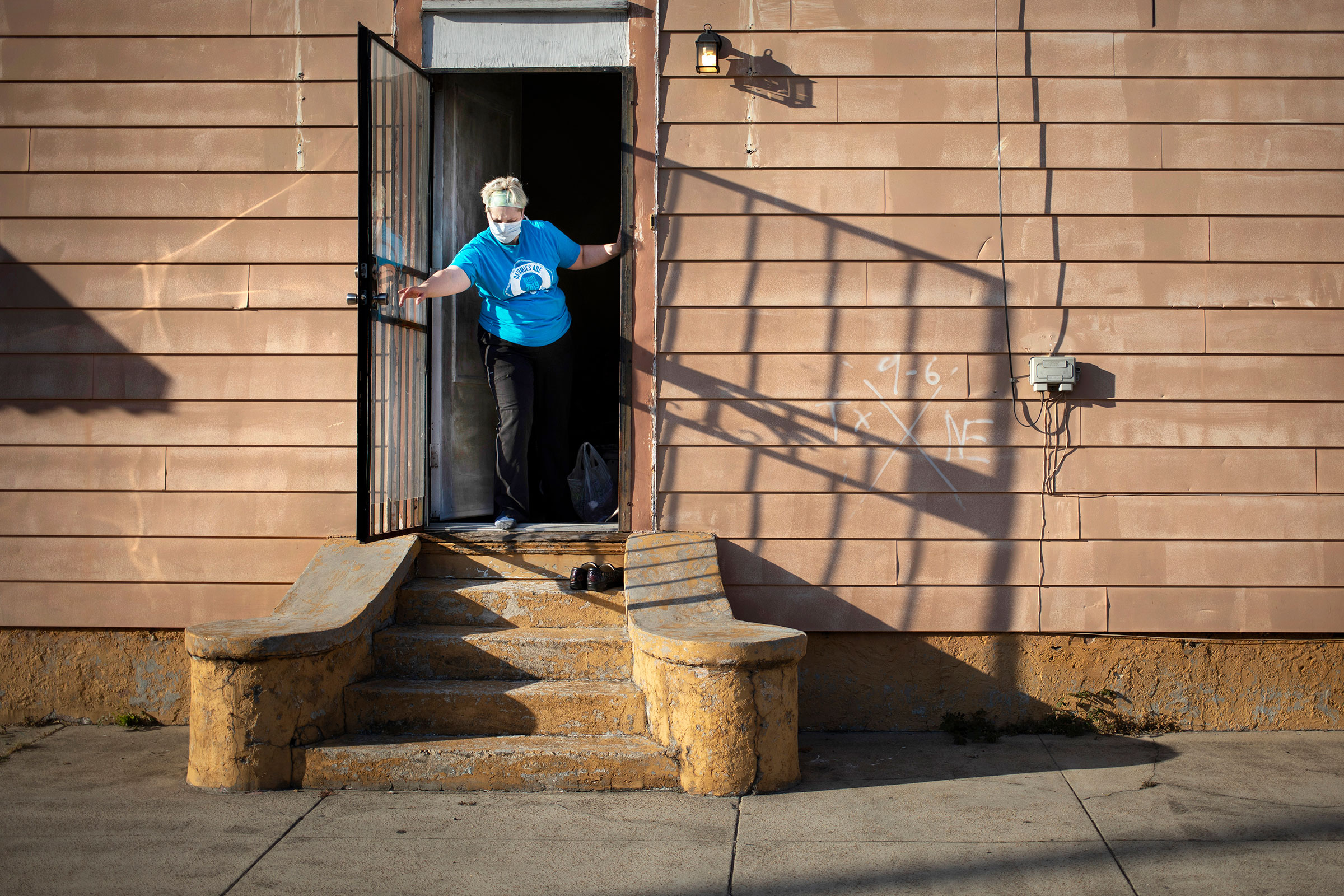
When my test came back negative, I was extremely relieved. But when I returned to work at the hospital just a few days later, I could tell things were different as soon as I walked in the door. It’s eerie how quiet things are. The hospital has a sound to it like you expect during a holiday, like during Thanksgiving or the weekend, because right now, to reduce the spread of COVID, there’s a limit on visitors.
We’re waiting for it to all just be COVID. Which is scary. It’s bad, but it’s about to hit the peak, and then it’s going to plateau. And what we’re waiting for is the great wave of the peak. There’s a vast contrast from the first person I took care of to what it’s like now. I think what’s hitting me is that there’s a difference in seeing more patients coming in that are critically ill. And that’s what’s so different, and scary.
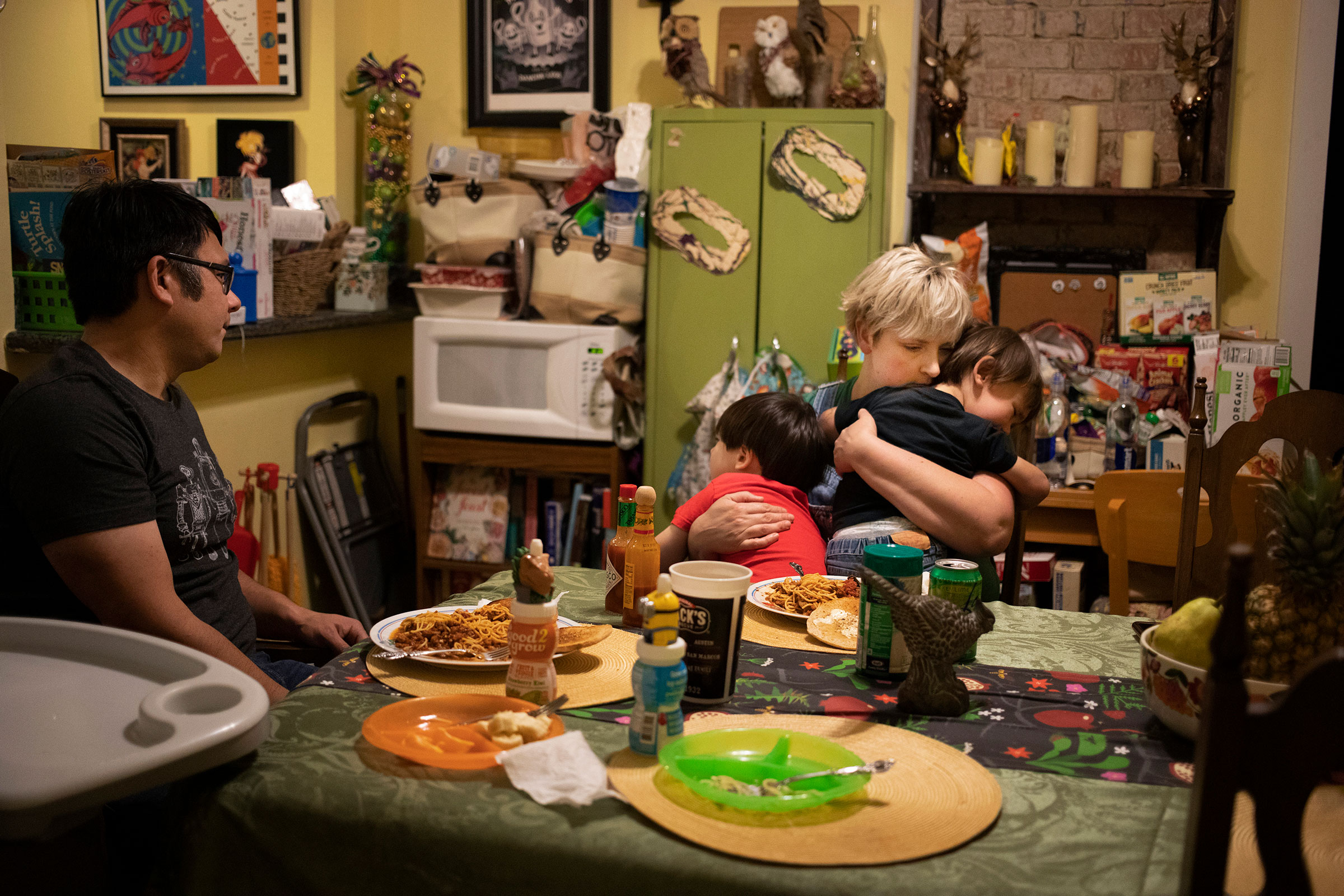
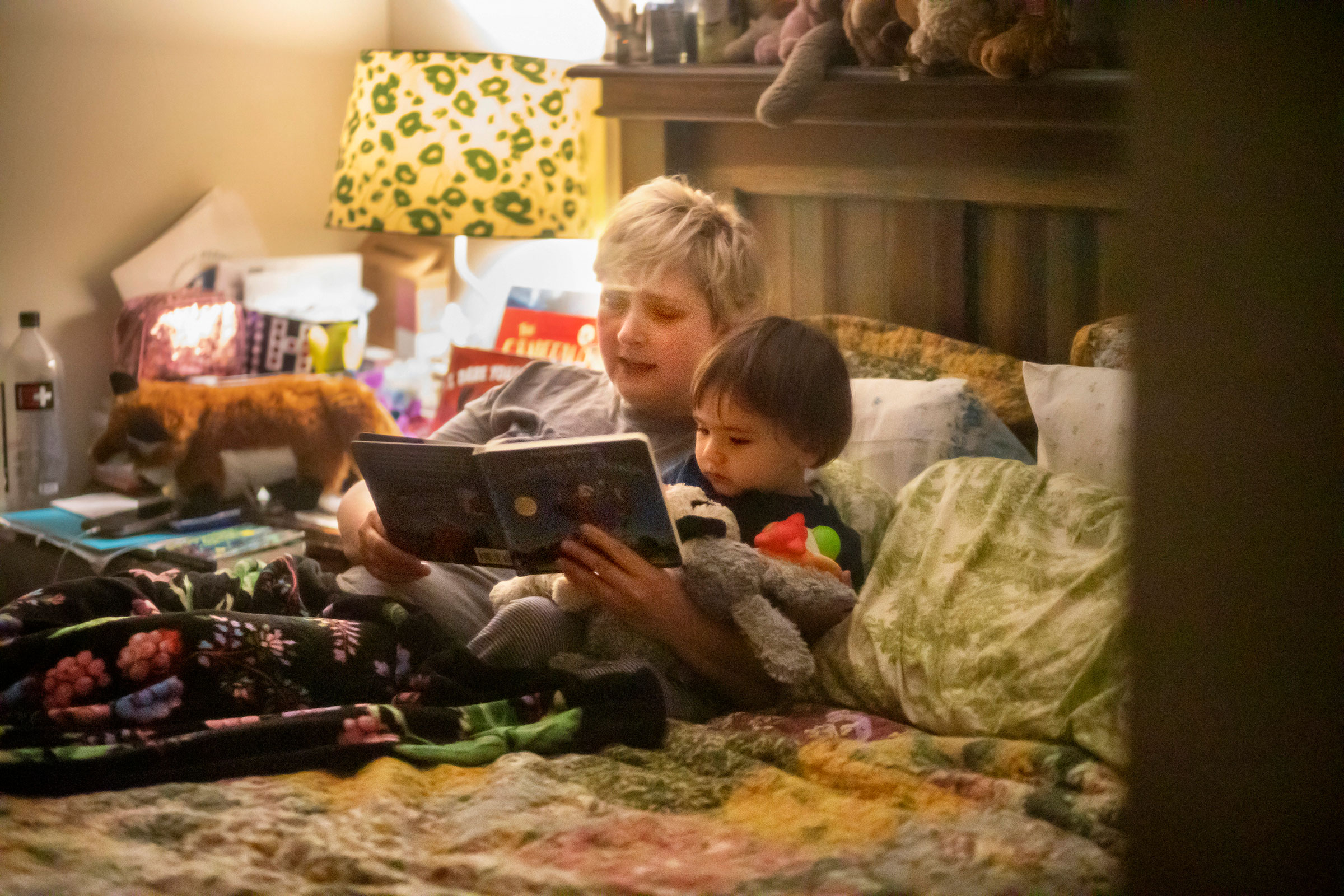
[After work] I used to pick up food for my kids or go to the grocery store. And now it’s like, I come straight home, and I treat myself like I am contaminated. Get out of your COVID clothes, and put them in the wash as fast as you can, and get yourself in the shower. Leave your shoes on the porch, put them in a bag. Spray them down.
I no longer wear a wedding ring because I’m trying to not have anything get up underneath it. I’m not wearing jewelry. I’m trying to keep my hair short. I’m not wearing eye makeup. I don’t want to touch my face in any way. If I have a runny nose, I just let the snot run down. Or if you cry, you just let the tears roll. —As told to Katy Reckdahl
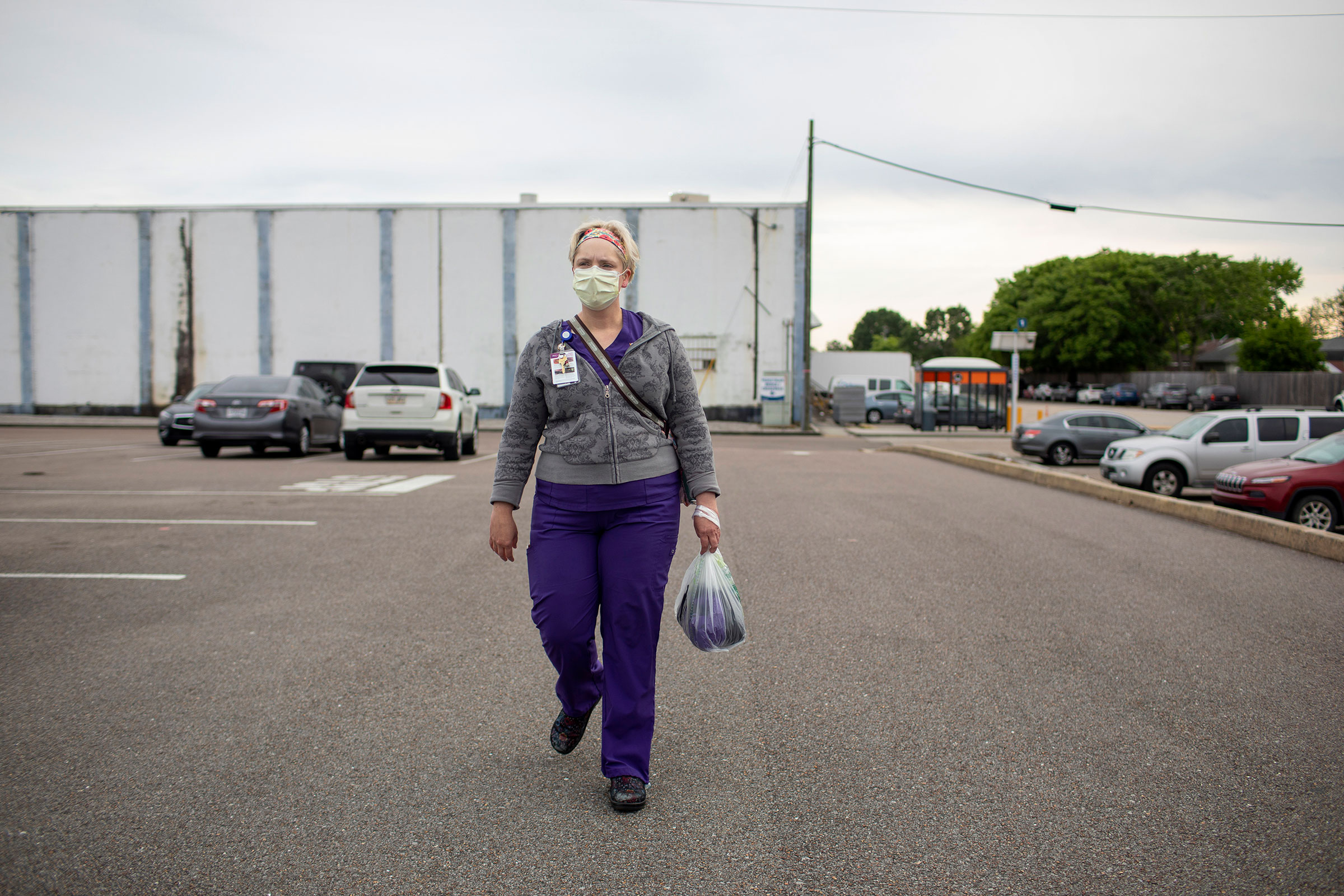
- Why Biden Dropped Out
- Ukraine’s Plan to Survive Trump
- The Rise of a New Kind of Parenting Guru
- The Chaos and Commotion of the RNC in Photos
- Why We All Have a Stake in Twisters’ Success
- 8 Eating Habits That Actually Improve Your Sleep
- Welcome to the Noah Lyles Olympics
- Get Our Paris Olympics Newsletter in Your Inbox